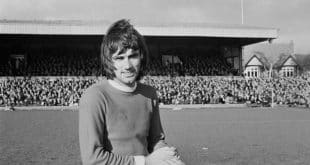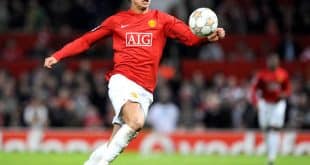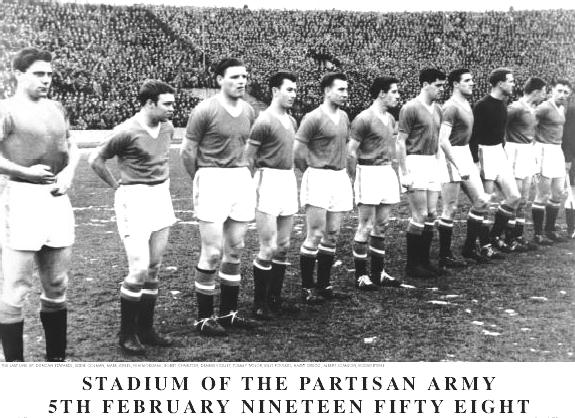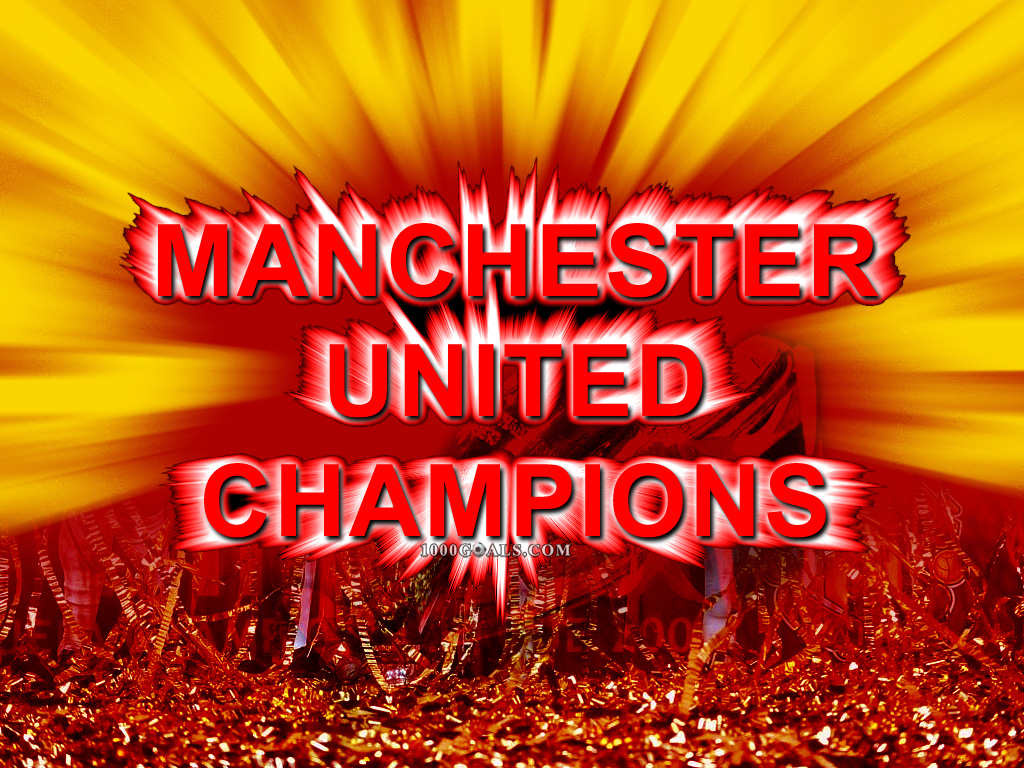Table of Contents
Did you know that Manchester United, founded in 1878 as Newton Heath LYR Football Club, has a storied past filled with triumphs and challenges? From humble beginnings to becoming one of the most successful football clubs globally, their journey is nothing short of remarkable. The club’s rich history includes legendary players, iconic moments, and a passionate fan base that spans the globe. Join us as we delve into the captivating story of Manchester United, exploring the key milestones, unforgettable matches, and the enduring legacy that continues to shape the world of football today.
Key Takeaways
- Understand the Legacy: Manchester United’s history is rich and diverse, spanning from its formative years to recent developments, showcasing a legacy of resilience and success.
- Lessons from Legends: Learning from iconic figures like Sir Matt Busby and Sir Alex Ferguson can provide valuable insights into leadership, team building, and long-term success in sports and beyond.
- Embrace Change: The evolution of the club’s crest, colors, and stadium reflects the importance of adapting to modern times while honoring tradition and heritage.
- Global Impact: Manchester United’s global influence extends far beyond the pitch, demonstrating how sports can unite people worldwide and transcend cultural boundaries.
- Financial Dynamics: Exploring the club’s ownership structure and financial strategies offers a glimpse into the business side of football and the challenges of balancing tradition with commercial success.
- Aspire for Greatness: By studying the club’s honors and achievements, fans and aspiring athletes can find inspiration to strive for excellence, set ambitious goals, and work tirelessly towards success.
Formative Years
Early Beginnings
Manchester United, initially known as Newton Heath LYR Football Club, was established in 1878. The club participated in regional football leagues such as The Combination and the Football Alliance. In 1892, they achieved a significant milestone by gaining promotion to the First Division. Subsequently, Manchester United secured their first league title in 1908.
First Grounds
During their early years, Manchester United played matches at various historical grounds. Bank Street stood out as one of the club’s initial venues. These changing grounds symbolized the club’s growth and evolution over time.
Initial Successes
Under the management of Ernest Mangnall, Manchester United experienced early successes. Mangnall led the team to their first league titles in 1908 and 1911. Key individuals like Mangnall played a crucial role in shaping the club’s success.
Busby and Beyond
Building a Legacy
Matt Busby’s appointment in 1945 marked a new era for Manchester United, bringing a fresh vision and strategy. He laid the foundation for future successes by focusing on youth development and attacking football. Busby’s emphasis on nurturing talent like Beckham set the stage for a lasting legacy at the club.
Key decisions such as introducing the ‘Busby Babes,’ a team of young players, highlighted his commitment to developing homegrown talent. His strategic approach not only transformed the playing style but also instilled a winning mentality within the squad. This focus on youth and flair became synonymous with Manchester United’s identity and success over the years.
European Glory
Manchester United’s historic entry into European competitions occurred under Busby’s leadership, showcasing their ambition on a global stage. The club’s participation in the European Cup marked a significant milestone, becoming the first English team to compete in the prestigious tournament. This move not only raised the profile of English football but also solidified United’s position as a powerhouse in Europe.
Key moments such as the 1968 European Cup triumph, where Manchester United lifted the trophy for the first time, cemented their status as elite contenders. The victory symbolized years of hard work and dedication under Busby’s guidance, showcasing the club’s ability to compete at the highest level and secure prestigious titles.
Tragedy and Triumph
The tragic Munich air disaster in 1958 shook Manchester United to its core, claiming the lives of several players and staff members. Despite facing immense adversity, the club rallied together to honor the memory of those lost and rebuild from the tragedy. The resilience displayed by both players and fans during this dark period exemplified the unwavering spirit of Manchester United.
Following the disaster, Manchester United showcased remarkable strength by achieving triumphs, including winning the FA Cup in 1963. This victory not only honored the memory of the fallen but also demonstrated the club’s ability to rise above challenges and continue pursuing excellence. The unity and determination shown by everyone associated with Manchester United during this challenging time further solidified their place in football history.
Titles won by Manchester United
| Title | Number of Wins |
|---|---|
| English Premier League | 20 |
| FA Cup | 12 |
| EFL Cup | 5 |
| UEFA Champions League | 3 |
| UEFA Europa League | 1 |
| FIFA Club World Cup | 1 |
| Intercontinental Cup | 1 |
| UEFA Super Cup | 1 |
Ferguson Era
Domination Begins
Manchester United’s dominance in the First Division during the Busby era set the stage for a remarkable period under Sir Alex Ferguson. The back-to-back league titles in 1956 and 1957 were pivotal moments that signaled the beginning of the club’s domination in English football. Key players like Duncan Edwards and Bobby Charlton played crucial roles, with innovative strategies shaping their success.
Trebles and Doubles
Under Ferguson’s leadership, Manchester United achieved remarkable success by securing trebles and doubles. Winning multiple trophies in a single season not only showcased the team’s skill and determination but also solidified their position as a powerhouse in European football. These victories significantly enhanced the club’s reputation and legacy, leaving a lasting impact on fans worldwide.
- Pros:
- Enhanced reputation and legacy
- Demonstrated skill and determination
- Cons:
- Increased pressure to maintain success
- Heightened expectations from fans
Stars Emerge
The Ferguson era witnessed the emergence of star players who left an indelible mark on Manchester United’s history. Iconic figures such as Ryan Giggs, Paul Scholes, and David Beckham contributed significantly to the club’s success, both domestically and internationally. These stars not only excelled on the pitch but also played a vital role in shaping the identity and culture of Manchester United, embodying the values and spirit of the club.
- Key Players:
- Ryan Giggs
- Paul Scholes
- David Beckham
Recent Developments
New Challenges
Manchester United faced significant challenges in transitioning between eras, adapting to the ever-changing landscape of football. The club had to navigate through shifts in playing styles, team dynamics, and fan expectations. These transitions required strategic planning and swift decision-making to stay competitive.
The club embraced changes in football and management by integrating modern tactics and technologies into its training and scouting processes. Manchester United also focused on nurturing young talent through its youth academy, aiming to build a sustainable future for the team. This adaptation to new methodologies and approaches was crucial in maintaining the club’s relevance and success.
Key moments of transformation and evolution included the appointment of Ole Gunnar Solskjaer as manager, signaling a shift towards a more youthful and attacking style of play. The club also invested heavily in analytics and sports science to optimize player performance and minimize injuries. These strategic moves reflected Manchester United’s commitment to evolving with the times.
Management Changes
The impact of managerial changes on Manchester United’s history has been profound, shaping the club’s trajectory over the years. Each manager brought their unique philosophy, leadership style, and vision for success, influencing both on-field performance and off-field culture. From Sir Alex Ferguson’s legendary reign to Jose Mourinho’s tactical approach, each manager left a lasting imprint on the club.
Different managers implemented various strategies to propel Manchester United forward, from focusing on youth development to investing in marquee signings. Sir Alex Ferguson’s emphasis on team cohesion and mental toughness led to unparalleled success, while Louis van Gaal’s tactical acumen aimed at revitalizing the squad. These diverse approaches showcased the versatility and adaptability of Manchester United under different leaderships.
Key decisions such as appointing David Moyes after Ferguson’s retirement or hiring Jose Mourinho for his proven track record underscored the club’s ambition for sustained excellence. These managerial changes not only influenced on-field performances but also shaped the club’s identity and values, emphasizing a winning mentality and a commitment to excellence.
Modern Successes
In recent years, Manchester United has enjoyed modern successes in both domestic leagues and international competitions. Under managers like Ole Gunnar Solskjaer and Jose Mourinho, the club secured key victories in tournaments like the Europa League and Carabao Cup. These achievements highlighted Manchester United’s enduring legacy of triumph on the global stage.
The club’s modern era is defined by memorable moments such as Marcus Rashford’s last-minute winner in a crucial Champions League match or Bruno Fernandes’ game-changing performances in midfield. These standout performances symbolize Manchester United’s resilience, skill, and determination to succeed against formidable opponents. As the club continues to strive for greatness, these modern successes serve as testaments to its storied history and unwavering spirit.
Crest and Colors
Emblem Evolution
Manchester United’s emblem has undergone significant changes over the years, reflecting the club’s growth and evolution. The emblem first featured a ship, symbolizing Manchester’s maritime history, before transitioning to the iconic red devil in 1973. This change marked a shift towards a more aggressive and dominant image for the club.
The emblem’s evolution signifies Manchester United’s transformation from a local team to a global powerhouse. The incorporation of the red devil represented the club’s fierce competitiveness and determination to dominate on the field. The subtle alterations in design elements, such as the positioning of the devil and font styles, have kept the emblem modern while honoring its historical roots.
- Emblem transitioned from a ship to a red devil
- Symbolizes club’s competitive spirit and global presence
Kit Changes
Manchester United’s kits have witnessed remarkable transformations throughout its rich history. From the traditional red and white colors to various experimental designs, each kit change has reflected the club’s identity and values. Collaborations with renowned brands like Adidas have brought innovative designs that resonate with fans worldwide.
The evolution of Manchester United’s kits not only showcases changes in fashion trends but also represents the club’s journey through different eras. Iconic kits, such as the “Treble-winning” strip from 1998–1999, hold special significance for fans and players alike. These kits serve as tangible symbols of the club’s achievements and legacy on the football pitch.
- Kits reflect club’s identity and historical milestones
- Collaborations with brands like Adidas bring innovative designs
Old Trafford
From North Road
Manchester United’s journey from North Road to establishing a permanent home was pivotal in shaping the club’s identity. Playing at North Road marked the early stages of the club’s development, showcasing their humble beginnings. The transition to more established grounds signified the growth and ambition of the historic football club.
The significance of North Road lies in its role as Manchester United’s initial venue, where the team laid the foundation for future success. It served as a platform for the club to build a strong fan base and establish their presence in the footballing world. Moving away from North Road marked a crucial turning point in the club’s history.
Key milestones in the transition to more established grounds include strategic decisions that propelled Manchester United towards greater heights. The shift to more modern stadiums reflected the club’s evolution and commitment to excellence. This progression set the stage for Manchester United to become one of the most renowned football clubs globally.
To Bank Street
The move to Bank Street marked a significant chapter in Manchester United’s growth trajectory. Bank Street quickly became a revered venue for the club’s matches, attracting an ecstatic Old Trafford crowd with its vibrant atmosphere. The stadium played a vital role in fostering a sense of community among fans and players alike.
Bank Street’s significance extended beyond being a mere playing field; it became a symbol of Manchester United’s resilience and determination. The venue witnessed key matches and events that shaped the club’s legacy, solidifying its place in football history. The memories created at Bank Street continue to resonate with fans to this day.
Key matches and events that took place at Bank Street showcased Manchester United’s competitive spirit and unwavering dedication. These moments not only defined the club’s identity but also laid the groundwork for future successes on and off the pitch. Bank Street remains an integral part of Manchester United’s rich tapestry of achievements.
Home of the Reds
Old Trafford stands as the iconic home of Manchester United, embodying the club’s history and success. The stadium has evolved into a symbol of pride for fans worldwide, earning its reputation as the “Theatre of Dreams.” Its hallowed grounds have witnessed unforgettable moments that have become etched in football folklore.
Old Trafford’s significance transcends mere bricks and mortar; it represents the heart and soul of Manchester United. The stadium serves as a beacon for fans, players, and staff alike, uniting them under a common passion for the game. The legacy of Old Trafford continues to inspire generations of supporters with its storied past and promising future.
Highlighting key moments and matches that define Old Trafford reinforces its status as a sacred ground for football enthusiasts. From legendary players gracing its pitch to historic victories celebrated by thousands, Old Trafford encapsulates the essence of Manchester United’s enduring legacy.
Global Influence
Rivalries
Manchester United has a rich history of historic rivalries with clubs like Liverpool and Manchester City. These intense rivalries have played a crucial role in shaping the club’s identity over the years. The matches against these rivals are always highly anticipated by fans, creating an electric atmosphere.
The rivalry with Liverpool, known as the North West Derby, dates back decades and is considered one of the fiercest in English football. Matches between these two giants have often been filled with drama, passion, and unforgettable moments. The fierce competition between the clubs has fueled a sense of pride and tradition among supporters.
Key moments in Manchester United’s rivalry with Manchester City include the famous “Manchester Derby” clashes. These matches not only divide the city but also showcase the intense competition between the two clubs vying for dominance in Manchester. Memorable encounters have left a lasting impact on both sets of fans and added to the lore of this historic rivalry.
Brand Expansion
Manchester United’s journey from a local powerhouse to a global brand is a testament to its strategic vision and innovative marketing efforts. The club’s global appeal has been cultivated through various initiatives aimed at engaging fans worldwide. Through digital platforms and social media, Manchester United has connected with millions of supporters across the globe.
The club’s brand expansion has been fueled by strategic partnerships with global brands like Adidas and Chevrolet. These collaborations have not only enhanced the club’s visibility but also provided financial stability for long-term growth. Manchester United’s merchandise sales and commercial partnerships have significantly contributed to its status as a global sporting brand.
Sponsorship Deals
Sponsorship deals have played a vital role in Manchester United’s financial stability and success on and off the pitch. Partnerships with companies like Aon, DHL, and Kohler have bolstered the club’s revenue streams, allowing for investments in player transfers, stadium upgrades, and youth development programs. These sponsorships have become integral to modern football economics.
The significance of sponsorships in football cannot be overstated, especially in an era where clubs rely on commercial deals to fund their operations. Manchester United’s ability to secure lucrative sponsorship agreements has positioned them as one of the wealthiest clubs globally. These partnerships not only benefit the club financially but also contribute to its overall brand image and marketability.
Ownership and Finances
Glazer Takeover
The Glazer family’s takeover of Manchester United in 2005 was met with controversy and resistance from the club’s fan base. The acquisition, valued at around £790 million, led to significant debates about the impact on the club’s financial health.
Fans were concerned about the increased debt burden placed on Manchester United due to the leveraged buyout by the Glazers. The takeover resulted in protests and backlash from supporters who feared that the club’s heritage and success would be compromised for financial gains.
The Glazer takeover marked a shift in Manchester United’s ownership structure, moving from being a fan-owned club to one controlled by a wealthy family. This change sparked ongoing discussions about the balance between financial stability and preserving the club’s traditions.
Financial Overview
Manchester United’s financial history is characterized by its revenue-generating capabilities, driven primarily by commercial deals, sponsorships, and broadcasting rights. The club’s consistent performance on the field has contributed to its global brand value and revenue growth.
Over the years, Manchester United has faced various financial challenges, including managing high player salaries, transfer fees, and stadium maintenance costs. Despite these hurdles, the club has maintained its position as one of the wealthiest football clubs globally.
Key financial milestones for Manchester United include record-breaking sponsorship deals with companies like Adidas and Chevrolet, as well as lucrative broadcasting agreements. These partnerships have bolstered the club’s revenue streams and enhanced its economic viability in a competitive sports industry.
- Pros:
- Diversified revenue sources
- Global brand recognition
- Cons:
- High debt levels post-Glazer takeover
- Financial constraints impacting transfer activities
Honors and Achievements
Notable Honors
Manchester United boasts a rich history filled with prestigious honors and achievements. The club has clinched numerous domestic and international trophies, solidifying its status as one of the most successful football clubs globally. Over the years, Manchester United has secured an impressive 20 league titles in the English top-flight division, the Premier League. These league victories have been instrumental in shaping the club’s identity and dominance in English football. Manchester United has triumphed in various prestigious cup competitions, including 12 FA Cups and 5 League Cups, further enhancing its illustrious trophy cabinet.
The significance of these honors extends beyond mere silverware; they serve as a testament to Manchester United’s enduring legacy and unparalleled success in the world of football. Each league title and cup victory represents the culmination of dedication, skill, and unwavering determination displayed by players, coaches, and supporters alike. These achievements not only showcase Manchester United’s on-field prowess but also highlight the club’s resilience and ability to consistently perform at the highest level. Moreover, these notable honors play a pivotal role in preserving the club’s storied history and cementing its place as a footballing powerhouse.
Women’s Team Success
In recent years, Manchester United’s women’s team has emerged as a force to be reckoned with in the realm of women’s football. The team’s journey to prominence has been marked by remarkable success, highlighted by significant victories and milestones. Key players such as Katie Zelem and Lauren James have played pivotal roles in propelling the women’s team to new heights, showcasing exceptional talent and skill on the field. Their contributions, along with those of their teammates, have been instrumental in securing important wins and accolades for Manchester United.
The women’s team’s success is not only a testament to the players’ abilities but also reflects the club’s commitment to fostering talent and promoting gender equality in football. As the women’s game continues to grow in popularity and recognition, Manchester United’s women’s team stands at the forefront of this evolution, inspiring young girls and aspiring footballers around the world. Through their dedication, passion, and relentless pursuit of excellence, the women’s team has carved out a place for themselves in Manchester United’s storied history, adding another chapter to the club’s legacy of success.
Final Remarks
You’ve journeyed through the rich history of Manchester United, from its humble beginnings to its global prominence today. Each era, from Busby to Ferguson and beyond, has shaped the club’s identity and success. The iconic crest, the vibrant colors, and the legendary Old Trafford stadium all contribute to the club’s legacy. Ownership, finances, honors — every aspect reflects the dedication and passion that define Manchester United.
As you continue to follow the club’s journey, remember the values it stands for: perseverance, excellence, and unity. Whether you’re a die-hard fan or a casual observer, Manchester United’s story is a testament to the power of sports in bringing people together. Stay engaged, celebrate the victories, learn from the defeats, and above all, keep the Red Devils spirit alive!
Frequently Asked Questions
What are the key highlights of Manchester United’s Formative Years?
Manchester United’s Formative Years were marked by the club’s establishment in 1878 as Newton Heath LYR Football Club, financial struggles, and the change of name to Manchester United in 1902.
How did Busby and Beyond shape Manchester United’s legacy?
Busby and Beyond era at Manchester United is synonymous with Sir Matt Busby’s tenure from 1945–1969, which included rebuilding after World War II, Munich Air Disaster in 1958, and laying the foundation for future success.
What defines the Ferguson Era at Manchester United?
The Ferguson Era refers to Sir Alex Ferguson’s managerial reign from 1986–2013, characterized by numerous domestic league titles, Champions League victories, nurturing young talents like Beckham and Giggs, and establishing a winning culture.
What recent developments have impacted Manchester United?
Recent Developments at Manchester United include changes in ownership structure, commercial partnerships, player transfers, managerial shifts, and efforts to remain competitive in European football competitions.
How significant is Manchester United’s Crest and Colors?
Manchester United’s Crest and Colors symbolize the club’s heritage — the Red Devil representing courage and strength, while the colors red and white derive from the club’s origins as Newton Heath LYR Football Club.






